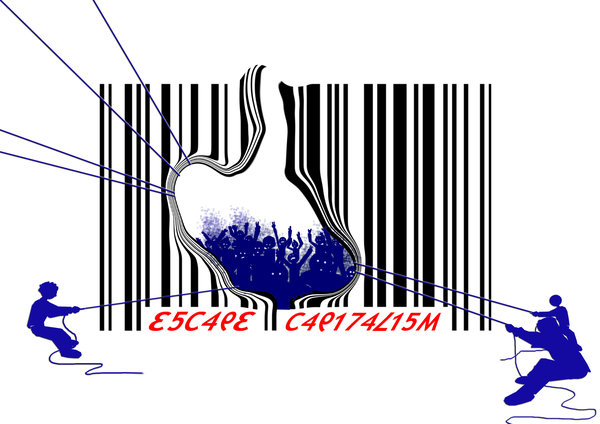Put simply, any generation of economic value requires resources. These resources are extracted from somewhere in the world, used in some fashion to create energy or further materialsUnfortunately, there are fundamental flaws in this plan. The Energy Return on Investment (EROI) of renewable energies is generally much lower than that of fossil fuels. In other words, for a given amount of resources invested in renewables, you receive much less usable energy back than the same investment in fossil fuels would yield. This is because power such as that from the sun and wind is more diffuse and harder to capture. Renewables, therefore, require more land, and their construction is energy-intensive and necessitates many rare earth materials. So although renewables create fewer carbon emissions than fossil fuels, their ecological impact shifts into other forms. Accordingly, recent research has shown that absolute decoupling of economic growth from material impact is incredibly unlikely, especially at the scale and pace needed to limit global warming to below the much-discussed two-degree rise above pre-industrial levels. Even if a global rollout of renewable technologies occurred tomorrow, it is unlikely that their energy returns would be sufficient to meet the current energy demand of the global economy. For these reasons, the growth paradigm cannot deliver the economic and social transformation required to meaningfully combat climate and ecological breakdown. If we are to create a just and sustainable future for life on Earth, we must instead look to alternative economic paradigms which explicitly contest the growth imperative. One such paradigm is degrowth.
Degrowth does not represent the opposite of growth, recession, but a complete restructuring of society around values of conviviality, solidarity, and sufficiency.To achieve this aim, degrowth argues for establishing more localized economies, which reduce the reliance on high-emission international trade flows. By strengthening the role of co-operatives, solidarity and sharing economies, production processes could be democratically organized around social and ecological well-being, rather than the resource-insatiable profit motive. As a result, the power of the wage-labour market over peoples’ lives would also be diminished. Consequently, degrowth not only provides a practical route out of climate breakdown but also offers the prospect of simpler, more fulfilling ways of living, where more time can be dedicated to community, relationships and creative pursuits. To reframe Kennedy’s words, degrowth truly has the power to prioritize the things which make life worthwhile.

Green growth advocates praise resource efficiency for its potential to incentivize the economy and lower its ecological impact. On the other hand, the Jevons Paradox, describes multiple situations (or rebound effects) in which increased efficiency leads to further consumption (either direct or indirect) which offsets the initial ecological benefits achieved. In this piece, I join this discussio...
From our project “Degrowth in Movement(s)“ Artivism is not really a movement. It’s more an attitude, a practice which exists on the fertile edges between art and activism. It comes into being when creativity and resistance collapse into each other. It’s what happens when our political actions become as beautiful as poems and as effective as a perfectly designed tool. Artivism is the Clown Army...

Europe is exhausted. It is exhausted after long years of what is labeled as the Eurozone crisis. It is exhausted after years of economic success and – now – prolonged years of political failure. Every single attempt of deepening the political union of Europe after the enactment of the Maastricht Treaty in 1993 and the [...]